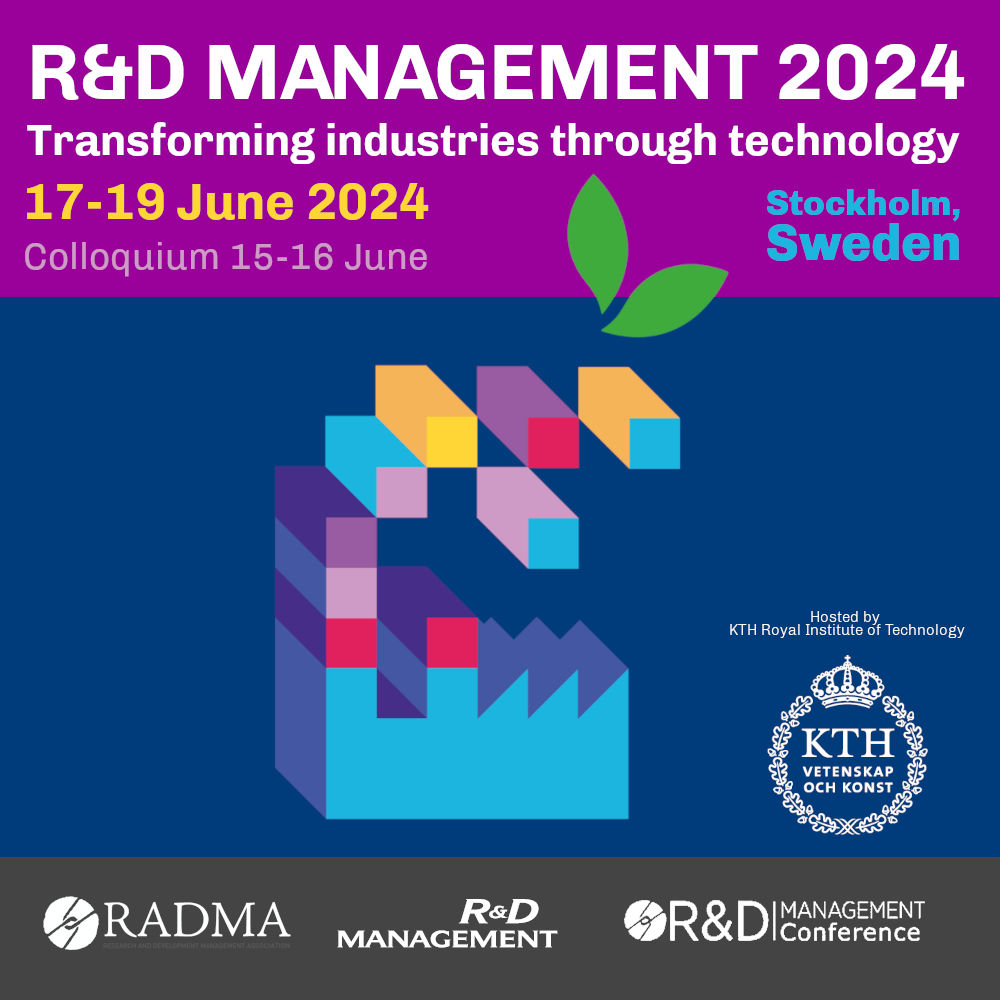Greenspan’s expression “irrational exuberance” might also describe the rapid uptake of Generative AI (GenAI).
Generative AI offers novel opportunities for problem-solving and can also autonomously create new and original content such as chat responses and designs. It has also been associated with the development of synthetic data and deepfakes.
It has evolved in part from Natural Language Processing (NLP), which uses Large Language Models (LLMs) to predict semantic probabilities.
However, semantics are only one element of communications, GenAI cannot be aware of the interpreter’s (human or otherwise) sensemaking models that are used to give meaning to their experiences.
Dr Peter Riddell, a researcher and management consultant, is a co-chair of an R&D Management 2024 track looking at the role of GenAI in R&D management.

The track aims to review the evolution of NLP and GenAI and to compare them to the emerging area of Artificial General Intelligence (AGI), which claims to perform as well or better than humans on a wide range of cognitive tasks, and Strong AI, where the machine has a subjective conscious experience similar that of a human mind.
More near market, the discussion will also include an evaluation of selected AI offerings, such as digital twins and what they can and cannot do within the limits of GenAI.
We asked Peter about the themes of the track.
Dr Riddell comments that it was Plato, Aristotle and more recently Chomsky, who formalized grammatical structures that have allowed predictive semantic processing. So the Natural Language Processing (NLP) and Large Language Models (LLM) that we see today have deep roots.
“Placing Generative AI in its historical context of NLPs evolution and objectively assessing it for what it is and for what is not, might allow more prudent application of its capabilities.”
If someone was new to this topic what would you suggest they read to get a quick overview of the issues?
Austin, P. (2021). Theory of language: a taxonomy. SN Social Sciences, 1(3), 1–24. https://doi.org/10.1007/s43545-021-00085-x
Concannon, F., Costello, E., Farrell, O., Farrelly, T., & Graves Wolf, L. (2023). Editorial: There’s an AI for that: Rhetoric, reality, and reflections on EdTech in the dawn of GenAI. Irish Journal of Technology Enhanced Learning, 7(1).
Goertzel, B. (2023). Generative AI vs. AGI: The Cognitive Strengths and Weaknesses of Modern LLMs. 1–92. Retrieved from http://arxiv.org/abs/2309.10371
Sowa, J. F. (2014). Peirce ’ s Contributions to the 21st Century. (November).
Peter will also be presenting a paper in Track 2: Creativity and its Management driven by Generative Artificial Intelligence, which is connected to an upcoming special issue of the journal Creativity and Innovation Management ‘Creativity and its Management driven by Generative Artificial Intelligence’, and which is co-chaired by Dr. Martin G. Moehrle (Institute of Project Management and Innovation, University of Bremen) and Prof. Dr. Katharina Hölzle (Director of IAT University of Stuttgart and Fraunhofer IAO).

R&D Management Conference 2024: Transforming industries through technology
KTH Royal Institute of Technology, Stockholm, 17-19 June 2024
Track 1: A semiotic perspective of AI in R&D Management
Track chair: Peter Riddell, R&D Innovation consultant

